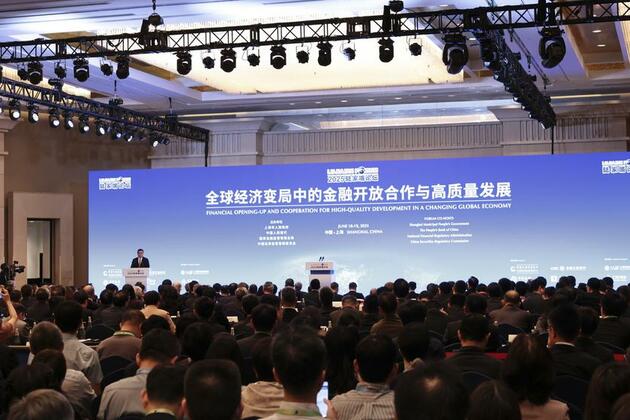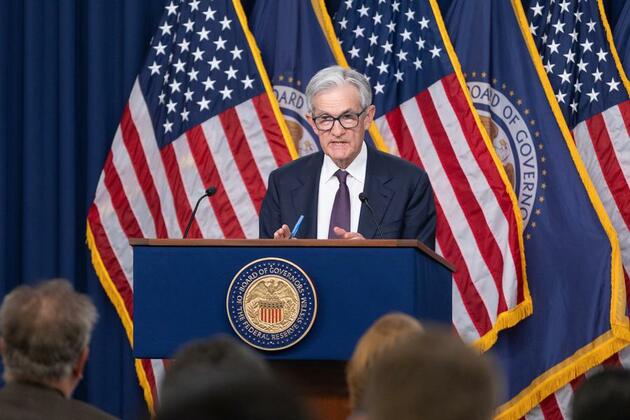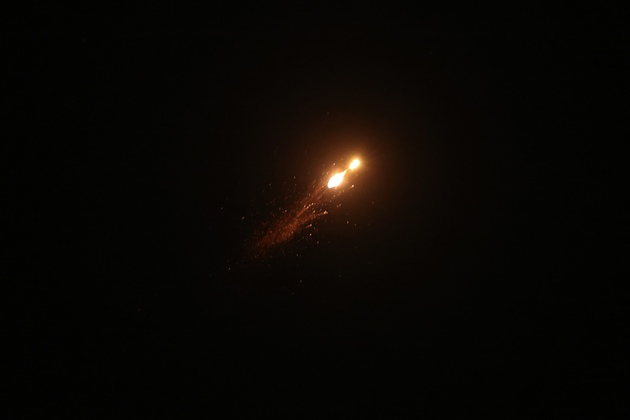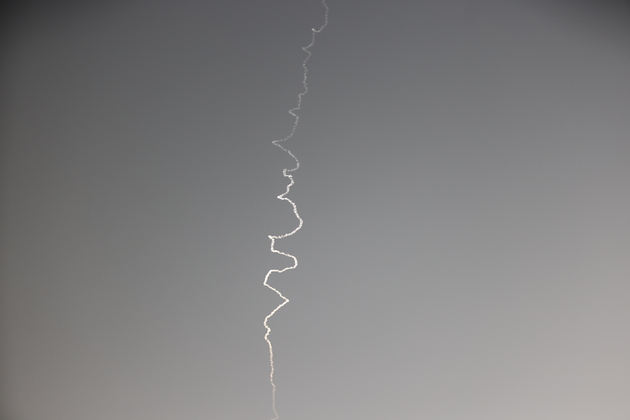Letter from Mideast: Tehran under attack -- inside the night Israeli strikes shattered the city's calm
Xinhua
19 Jun 2025, 08:15 GMT+10
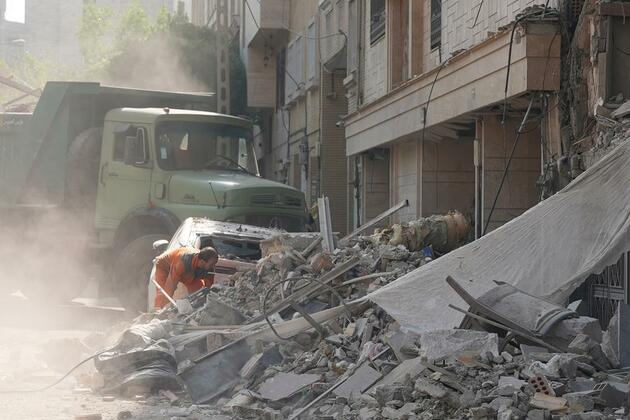
I took some melatonin and forced myself to lie down on the makeshift "little bunker" I had created with the sofa in the living room. It was farther from the windows and doors -- it felt a bit safer.
by Xinhua writer Chen Xiao
TEHRAN, June 19 (Xinhua) -- In the early hours of June 13, it felt like just another late night for someone like me who's used to staying up.
After U.S. President Donald Trump sent a letter to Iranian Supreme Leader Ayatollah Ali Khamenei in March that included a two-month deadline for reaching a new nuclear deal, my colleagues and I were already fully prepared -- both psychologically and materially -- from anxiously stockpiling supplies to bracing for a plunging exchange rate. What began as panic gradually gave way to numb acceptance.
Previously, round after round of nuclear negotiations between Iran and the United States had proceeded smoothly, with positive signals emerging each time. As a result, everyone let their guard down -- believing that a possible "Israeli strike on Iranian nuclear facilities" was unlikely to happen.
But the calm in Tehran was soon shattered.
At around 3 a.m. (2330 GMT), a massive explosion jolted the city from its sleep.
I was awakened by a phone call in the middle of the night and scrambled to my computer. I could hear the collective buzz of flying objects outside the window -- the sound growing louder, then fading into the distance -- followed soon by explosions.
Just a few hours earlier, fireworks celebrating Ghadir had lit up the Tehran night sky. Eid al-Ghadir is one of the most significant holidays in Islam.
During the three-day holiday marking this religious festival, Iranians celebrated as usual, launching fireworks that painted the sky in shifting shades of indigo, accompanied by sharp, crackling bursts.
At that time, a colleague called to confirm whether the noise just now meant Israel had struck. I replied that it was nothing -- just Ghadir fireworks.
After nearly a year stationed in Tehran, I had become skilled at distinguishing the sounds of fireworks, missiles, bombs, drones, and air defense systems.
What I didn't expect was to hear all those sounds within just a few hours.
Never in my dreams did I imagine that an Israeli strike could penetrate so deeply into the capital of a major nation, hitting residential neighborhoods.
Iran has just experienced its largest attack on home soil since the Iran-Iraq War that lasted from September 1980 to August 1988. The reality was even more brutal.
As daylight broke, people stared in shock at buildings ripped open by the blasts. The closest struck building to us was just south of our street.
According to reports, at least 60 people were killed in a 14-story residential building not far from our bureau -- among them, 20 children.
The attacks continued. The Natanz nuclear facility came under sustained bombardment -- if one strike failed, more followed hours later. By morning, Iran confirmed the death of Hossein Salami, commander of Iran's Islamic Revolutionary Guard Corps (IRGC). Just the night before, I had been writing a profile about Salami.
From the former head of the Atomic Energy Organization of Iran to university deans, and from the IRGC commander to the chief of staff of the Iranian armed forces -- reports of deaths came in rapid succession.
With the support of my colleagues, our bureau has been operating at full capacity, working around the clock.
This adrenaline-fueled state has become oddly familiar to me as a journalist in Tehran for less than a year -- no sleep, no appetite, no emotional ups and downs.
Life and death are no longer abstract notions or grim jokes. They're ever-present, unfolding realities that can strike at any moment.
I opened my phone and scrolled through social media and local Chinese community groups -- messages kept pouring in. Some wanted to leave but were stuck. Some feared that civilian airports might be bombed. Some were frantically asking about flight information, and some said their Iranian friends had lost family members.
People were sharing photos and videos of the explosions, describing the deafening roar of planes "flying just above their heads." They comforted and encouraged one another, waiting for a new day to arrive.
My Iranian colleague told me, "You know if things keep spiraling out of control, you can simply return to China ... But my cat and I are here, and we could be displaced at any moment."
No one knew whether the next moment would bring good news -- or a bomb crashing through the walls.
I took some melatonin and forced myself to lie down on the makeshift "little bunker" I had created with the sofa in the living room. It was farther from the windows and doors -- it felt a bit safer.
There were no bird calls, no barking dogs, no meowing cats, no wind, no voices from neighbors on the phone, no footsteps upstairs, no laughter from children ... On the eve of Iran's counterattack, the silence felt like a pitch-black vortex swallowing everything.
Amid the occasional sound of artillery and the all-consuming silence, I felt my limbs go weak with fear. At that moment, I understood just how fragile a person can be when facing life and death.
At that moment, I also realized, as someone who grew up in a peaceful country during a peaceful era, that even a glimpse of the shadow of war is enough to awaken a deep, primal fear in the soul.
 Share
Share
 Tweet
Tweet
 Share
Share
 Flip
Flip
 Email
Email
Watch latest videos
Subscribe and Follow
Get a daily dose of Greek Herald news through our daily email, its complimentary and keeps you fully up to date with world and business news as well.
News RELEASES
Publish news of your business, community or sports group, personnel appointments, major event and more by submitting a news release to Greek Herald.
More InformationInternational Business
SectionFoxconn iPhone exports from India now mostly headed to the US
NEW DELHI, India: Amid mounting U.S.-China trade tensions, Apple has sharply increased iPhone shipments from India to the United States,...
US: China lags in AI chips, but catching up fast
WASHINGTON, D.C.: The U.S. government estimates that Huawei will only be able to manufacture up to 200,000 advanced AI chips next year—well...
Ryanair CEO gets maximum bonus as Ryanair profits soar
DUBLIN, Ireland: Ryanair chief executive Michael O'Leary received a total pay package of 3.83 million euros for the financial year,...
China's vision for deeper financial opening-up highlighted at Shanghai Lujiazui Forum
SHANGHAI, June 19 (Xinhua) -- Multiple government officials have delivered speeches at the annual Lujiazui Forum being held in east...
"Very Sorry": Air India Chairman N Chandrasekharan apologises after AI-171 tragedy
New Delhi [India], June 19 (ANI): N Chandrasekaran, Chairman of Tata Sons and Air India, has apologised for the Air India AI-171 tragedy...
Daily World Briefing, June 19
2 Iranian centrifuge facilities attacked: IAEA Two centrifuge production facilities in Iran, the TESA Karaj workshop and the Tehran...
Mediterranean
SectionDebt fears drive fund outflows from US, inflows to Europe
NEW YORK CITY, New York: Investor confidence in U.S. markets is showing signs of strain as global funds redirect billions toward Europe...
Former student kills 9, then himself, in Austrian school
GRAZ, Austria: Austria is reeling after a tragic school shooting in Graz that left ten people dead, including the gunman, and 12 others...
Letter from Mideast: Tehran under attack -- inside the night Israeli strikes shattered the city's calm
I took some melatonin and forced myself to lie down on the makeshift little bunker I had created with the sofa in the living room....
"I have a plan for everything...anything could happen": US President Trump on escalating Israel-Iran conflict
Washington DC [USA], June 19 (ANI): US President Donald Trump on Wednesday (local time) expressed concern over the escalating tensions...
ISRAEL-TEL AVIV-IRAN-MISSILE ATTACKS-INTERCEPTION
(250619) -- TEL AVIV, June 19, 2025 (Xinhua) -- An air defense system launches an interceptor missile over Tel Aviv, Israel, on June...
MIDEAST-JERUSALEM-ISRAEL-INTERCEPTOR MISSILE
(250619) -- JERUSALEM, June 19, 2025 (Xinhua) -- The smoke trail of an interceptor missile targeting missiles launched from Iran is...




